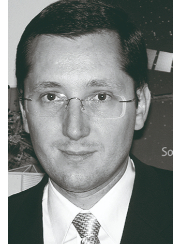Adriano Camps is a Telecommunications Engineer and PhD from the Universitat Politècnica de Catalunya (UPC), Barcelona, Spain, in 1992 and 1996. In 1991-1992 he was at the ENS Télécommunications de Bretagne, France, and in 1999 at the Microwave Remote Sensing Laboratory at UMass-Amherst. He has published +193 papers, +410 conference presentations, holds 10 patents, and has supervised 24 PhD theses, and +120 Bachelor and Master Eng. theses. According to Google Scholar his work has received +8548 citations, and his h-index is 46. He is co-founder of BALAMIS SL and MITICS SL, two UPC spin-off companies that manufacture remote sensors and RFI cancellation systems. He co-leads the UPC NanoSat Lab and is the Scientific Coordinator of the CommSensLab - Unidad de Excelencia María de Maeztu. In 2004 he received one of the European Young Investigator Awards, and in 2011 he became Fellow of the IEEE. He was the President of the IEEE Geoscience and Remote Sensing Society in 2017 and 2018.

Adriano Camps Carmona
ICREA Academia 2008 & 2014
Universitat Politècnica de Catalunya · Engineering Sciences

Research interests
His research interests are focused in microwave remote sensing, with special emphasis in microwave radiometry by aperture synthesis techniques (e.g. ESA SMOS mission), in remote sensing using signals of opportunity (GNSS-R), and nanosatellites as test beds of new instruments. He is the coPI of the first UPC nano-satellite 3Cat-1, a 1U CubeSat with 7 small technology demonstrators and scientific payloads, and the PI of 3Cat-2, a 6U CubeSat with the first dual-frequency dual-polarization GNSS-R payload. In May 2017, ESA selected 3Cat-4 within the Fly your satellite program for a launch from the International Space Station. 3Cat-4 is a 1U CubeSat for GNSS-R and microwave radiometry technology demonstration, and in November 2017 he and Prof. Golkar won the ESA Sentinel Small Satellite Challenge and the overall Copernicus Masters competition with the FSSCAT mission, to be launched in late 2019. This 2x6U cubesats will be the first cubesat mission contributing to the Copernicus system.
Keywords
(interferometric) microwave radiometry, GNSS-R, radio frequency interference, Earth Observation, nano-satellites